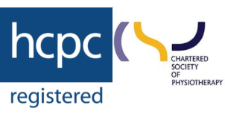About a Rotator Cuff Injury
A rotator cuff is the collection of muscles and tendons that keep your shoulder stable, a rotator cuff injury occurs when there is a tear or inflammation in the muscles and/or tendons. With the injury located within your shoulder, it makes it very difficult to do everyday tasks (anything involving lifting your arm above your head).
A rotator cuff injury is the most common cause of shoulder pain.
This is an injury that can be caused by wear and tear over a long period of time normally affecting older people but can also occur during an over-stretch or accident - tearing the muscles and tendons around your shoulder joint. This can be a dull, general ache or a sharp, severe pain if the injury has occurred because of an accident.
Who Does It Affect?
You are most likely to develop a rotator cuff injury if you regularly play sports with a lot of overhead movements. This includes swimming, throwing and weightlifting.
Symptoms of a Rotator Cuff Injury
The key symptom is the pain in your shoulder, as mentioned previously this will either be a dull, general ache or a sharp, severe pain after an accident. The pain will occur when trying to lift your arm above your head and can be very painful. This is a tell-tale sign that your injury could be damage to your rotator cuff.
It is advised to see a physiotherapist if you do have the symptoms as mentioned. Even with similar symptoms it is still advised as this could be a result of another type of injury.
You will be asked by a physiotherapist about the activities you participate in, which could be the main contributing factor to your injury. A physiotherapist will ask you to perform a series of movements to determine the full diagnosis.
Recovery of a Rotator Cuff injury
Physiotherapy will provide you with a series of specific exercises which will be tailored to you on how serious your injury may be. The rotator cuff can heal over time but without and treatment it can be a cause of ongoing problems in the future.
Physiotherapy will not only help with the recovery of the injury but will also help with the prevention of it happening in the future.
In severe cases there may be a need for steroid injections that will be recommended by your GP depending on the severity. In the most severe cases surgery will be needed to repair the damaged caused.
It is highly advised to seek a professional opinion if you do have any of the symptoms mentioned in this article.
You can speak to one of our expert physiotherapists for advice on the recovery of your shoulder pain on 01273 667 826 or email us at admin@hovephysio.com.


